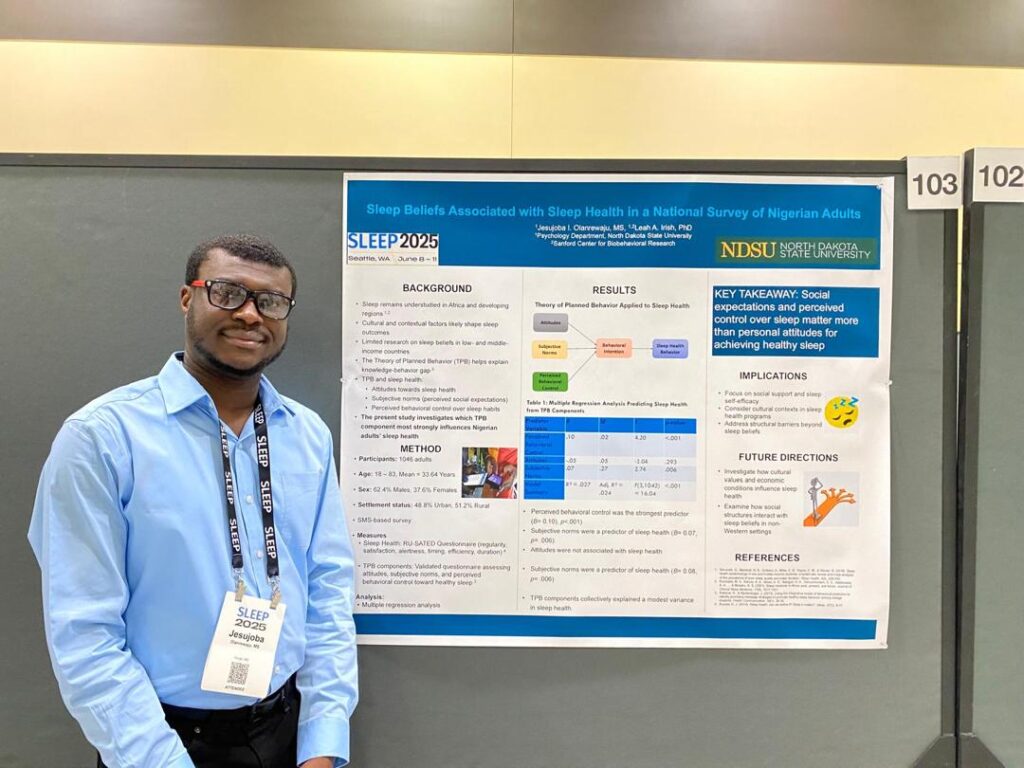Nigeria Faces Silent Sleep Crisis With Dire Health Implications, Expert Warns
A new national study has raised alarms over a growing health crisis silently spreading across Nigeria—sleep deprivation. The comprehensive research, which assessed over 1,000 adults across the country’s 36 states and the Federal Capital Territory, reveals that many Nigerians are chronically sleep-deprived, scoring just above 50 percent on standard global sleep health indicators.
The lead researcher, Jesujoba Olanrewaju, a US-based Nigerian behavioral sleep scientist, described the findings as a looming public health emergency. Speaking on the study conducted in July 2024, Olanrewaju emphasized the link between poor sleep and rising cases of cardiovascular disease, diabetes, mental health disorders, and premature death in Nigeria.
READ ALSO:Iran Never Saw It Coming – US Defence Officials Break Silence on Secretive Strike
“Adults across the country are simply not getting enough sleep, and the health consequences are severe,” he noted.
The study’s findings have been presented at international scientific conferences, including the Society of Behavioral Medicine meeting in San Francisco and the SLEEP 2024 conference hosted by the Associated Professional Sleep Societies in Seattle, USA. According to Olanrewaju, the research showed that sleep deprivation in Nigeria is not only widespread but also deeply ingrained in both urban and rural lifestyles.
The most troubling metric, he noted, was sleep duration, with a majority of Nigerians failing to meet the recommended 7–9 hours of nightly rest. Rural communities were found to have the poorest outcomes, suggesting a growing inequality in sleep health across the country.
Interestingly, the study uncovered a paradox—individuals in darker sleep environments, which are typically associated with better rest globally, reported worse sleep quality in Nigeria. Olanrewaju attributed this to a combination of insecurity, unstable electricity, and poverty.
“In many communities, total darkness doesn’t mean peace—it signals danger. People often stay on edge due to fear of robbery or violence, and this disrupts sleep,” he explained. “Context matters. What works in New York won’t automatically work in Nasarawa or Aba.”
Olanrewaju, a doctoral researcher at North Dakota State University specializing in behavioral sleep medicine, is a member of several global professional associations, including the American Academy of Sleep Medicine and the World Sleep Society. His work centers on advancing sleep health in underserved populations using behavior-based solutions.
He called on Nigerian health policymakers to begin treating sleep as a vital component of public health—not just a lifestyle choice.
“The Ministry of Health needs to prioritize sleep education. It should be part of our primary healthcare framework and national wellness campaigns,” he urged. “We need to stop treating sleep like a luxury. It’s as fundamental as clean water or balanced nutrition.”
Beyond governmental action, he stressed that individuals must also adopt better sleep practices. “Quality sleep increases productivity, strengthens the immune system, and improves mental clarity. If we want a healthier, more productive nation, we must start from the bedroom.”
With non-communicable diseases on the rise, Olanrewaju warned that Nigeria can no longer afford to ignore the role of sleep in shaping the health and wellbeing of its people.
“The encouraging part,” he concluded, “is that sleep is a modifiable behavior. With the right policies and awareness, Nigerians can learn to sleep better—and live better.”
His message is clear: if Nigeria is serious about transforming its health landscape, it must first awaken to the value of sleep.




